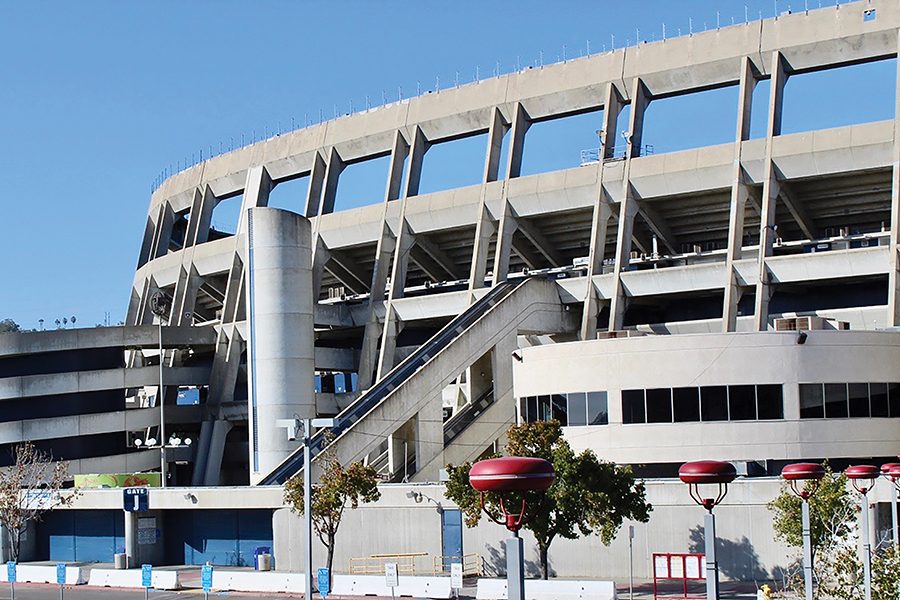The SDSU West initiative took home more key endorsements this week in the final stretch before the initiative will face off against the SoccerCity initiative in the polls on Nov. 6.
On Oct. 10, the San Diego Stadium Coalition announced in a Friends of SDSU press release they would endorse the SDSU West initiative, or Measure G. This was followed by an endorsement from the League of Women Voters on Oct. 11.
The SDSC is a community grassroots group that gained prominence as they supported building a stadium for the Chargers and have over 20,000 members.
SDSC founder and spokesperson Jason Riggs said the ultimate goal for the SDSC was to endorse a stadium that would provide the most civic benefit to San Diego.
“Our goal is to get a world-class stadium built in San Diego County and, between the two, we felt like the SDSU West plan, in terms of a stadium itself, was going to be more conducive to more events and potentially attracting other professional sport franchises to San Diego versus what SoccerCity was proposing which was a smaller, soccer-specific facility,” Riggs said.
Lori Thiel, president of the San Diego, League of Women Voters said their support for Measure G is based on their value for public input.
“We wholeheartedly believe that public input and participation is necessary in order for our community to be strong, safe and vibrant,” Thiel said. “Measure G prioritizes public input and provides the opportunity for San Diegans to approve a bright future for the stadium site that will benefit our region long-term.”
The SoccerCity campaign has missed out on a number of key endorsements this election season. SoccerCity spokesperson Darren Pudgil said the San Diego North Business Chamber, VAVi Sports, Mayor Kevin Faulconer, Councilman Scott Sherman, most soccer clubs in San Diego County and dozens of individual businesses were listed as primary endorsers for SoccerCity.
Nick Stone, project manager for SoccerCity, commended the endorsements they have received.
“We are very proud of the fact that those who endorsed us have done so based on the merits of our project — not insider politics, personal relationships or financial contributions,” Stone said in an email response. “Our supporters know that SoccerCity will generate twice as much tax revenue as the competing measure and not require the use of any taxpayer money or any increase in student fees.”
According to a press release from the SDSU News Center, SDSU would build a campus and an innovation district which would serve as a center for students to learn and interact with local and national businesses. Other additions to the land that plan includes is a new 35,000-person capacity stadium, student and faculty housing, hotels, retail and a river park.
According to the SoccerCity website, the initiative plans to develop a stadium that would be the home for a Major League Soccer team and a place for the Aztec football team to play in. The plan also entails a river park, an entertainment district with retail and restaurants, housing and research space, infrastructure improvements, recreation fields for the community and a soccer academy.







